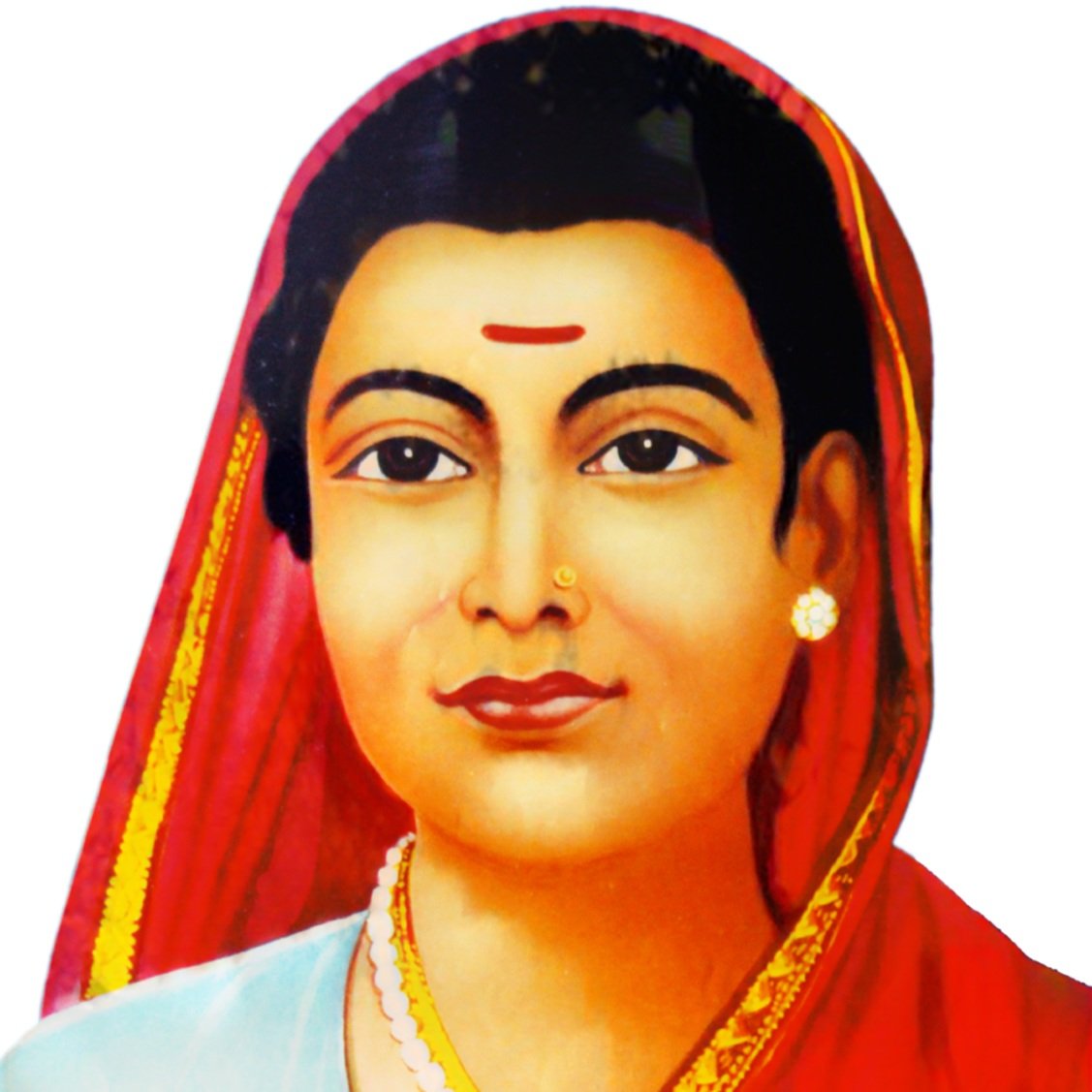


Born into a family of farmers, Savitribai Phule's determination and passion for education led her to become India's first female teacher. Along with her progressive husband, she established India's first school for girls and set up various other schools during her time. She also challenged traditional societal norms by advocating for women's rights, combating child marriage, and promoting widow remarriage. Her contributions to education and social equality continue to be celebrated on her birthday, now known as Women's Education Day.
Savitribai Phule: India's First Female Teacher and Social Reformer
Background
Savitribai Phule was born on January 3, 1831, in Naigaon, Maharashtra, India, into a family of farmers. Despite societal norms that discouraged education for girls, Savitribai was determined to learn. She married Jyotirao Phule, a fellow social reformer, in 1840. Together, they established India's first school for girls in Pune in 1848.
Contributions to Education
Savitribai Phule's passion for education extended beyond her own classroom. She and Jyotirao established several schools for girls and children from marginalized communities. She emphasized the importance of education for women, believing that it empowered them to challenge traditional gender roles.
Social Reform
Savitribai Phule was a vocal advocate for women's rights. She campaigned against child marriage, which was prevalent in Indian society at the time. She also promoted widow remarriage, a practice that was considered taboo.
Legacy
Savitribai Phule's contributions to education and social equality continue to be celebrated today. Her birthday, January 3, is now observed as Women's Education Day in India. Numerous schools, colleges, and organizations have been named after her.
Top 5 FAQs and Answers
Current Events
Past Events
Social Reform
Legacy
Education

In a crucial moment during the ICC Women's World Cup semifinal between India and Australia, Kranti Gaud delivered a fiery delivery that bowled over Australian captain Alyssa Healy. Her passionate celebration after taking the wicket captured the intense atmosphere of knockout cricket and united the crowd in support for the Indian team. Moments like this define pressure-packed matches, where skill, nerve, and a passionate roar can make all the difference.

Find out the special measures to take on Gopashtami to increase wealth, solve family problems, improve quality of life, maintain good health, and bring happiness and prosperity to your family. These rituals involve worshipping and showing respect to the cow, which is believed to hold immense significance on this day according to Hindu mythology. Don't miss out on the opportunity to unlock the auspicious benefits of Gopashtami for a prosperous and happy life.

These daily motivational thoughts in Hindi are perfect for starting the school day in a positive and uplifting way. Curated for students of all ages, these timeless and meaningful lines will bring clarity, confidence, and motivation to each individual. As we start our day with a good thought, it sets the tone for how we feel, act, and treat others throughout the day. These thoughts remind us of what truly matters and have the power to shift our entire mindset.

As the severe cyclonic storm Montha weakens into a deep depression over Andhra Pradesh and neighbouring Telangana, Telangana Chief Minister A Revanth Reddy has ordered disaster management teams to be deployed in the inundated areas of Hyderabad. Enquiries were also made about the impact of the cyclone on paddy and cotton crops in the state, with officials predicting a more severe impact in certain districts. The storm is expected to move towards south Chhattisgarh and further weaken into a depression.

The Disaster Management Cell of Navi Mumbai is on high alert as intense rainfall in the last 24 hours has caused trees to fall and a fire emergency to be reported in the city. The highest rainfall was recorded in Belapur, with the water level of Morbe Dam also increasing. The Indian Meteorological Department has issued an orange alert for Thane and Raigad districts as more heavy rain is expected. Municipal authorities are urging residents to stay safe and reach out for assistance in case of emergencies.

Nara Bhuvaneswari, Managing Trustee of NTR Trust, has been recognized for her lifelong dedication to voluntary social service by receiving the 'Distinguished Fellowship Award' from the Institute of Directors. She joins a list of illustrious awardees such as Dr A P J Abdul Kalam and Rajashree Birla, and has earned a unique name for herself through her tireless efforts in transforming the lives of thousands of underprivileged individuals through various initiatives of the Trust. Her selfless service and international recognition serve as a beacon of hope, inspiring others to follow her footsteps in making a positive impact on society.

A joyful occasion turned tragic in Mirzapur as a 17-year-old boy drowned and another remains missing during Chhath Puja celebrations. The incident occurred when five villagers entered River Ganga to take a ritual bath and began struggling in the water. While three were rescued by a local boatman, two boys were swept away. Mirzapur police are now continuing the search for the missing teenager and local divers have recovered the body of one of the boys. Similar unfortunate incidents have been reported in Jharkhand, with eleven people, mostly children, drowning in separate incidents during the past two days.

As predicted by the Regional Meteorological Department, parts of Tamil Nadu and Puducherry are experiencing light to moderate rainfall, along with thunderstorms and lightning. Due to the heavy rain alert, schools in Chennai will remain closed along with other districts such as Cuddalore, Villupuram, Ranipet, Puducherry, and Karaikal. The iconic Marina Beach in Chennai is also facing intense sea turbulence with rough waves and strong winds. Meanwhile, people in Thoothukudi are facing waterlogging due to continuous heavy rainfall.

The Delhi Traffic Police has issued a crucial advisory in preparation for the upcoming Chhath Puja celebrations in the city, which will take place on October 27 and 28, 2025. The advisory warns of potential heavy traffic and diversions near major water bodies and encourages commuters to use public transportation to avoid delays and congestion. The public is also reminded to report any suspicious activities and cooperate with the authorities for a safe and orderly celebration.

The Delhi Traffic Police has announced special traffic arrangements for the upcoming Chhath Puja celebrations in the city. Heavy footfall is expected at major ghats and ponds in different parts of Delhi, leading to diversions and restrictions on various roads. Commuters are advised to use public transport and avoid areas with expected gatherings.